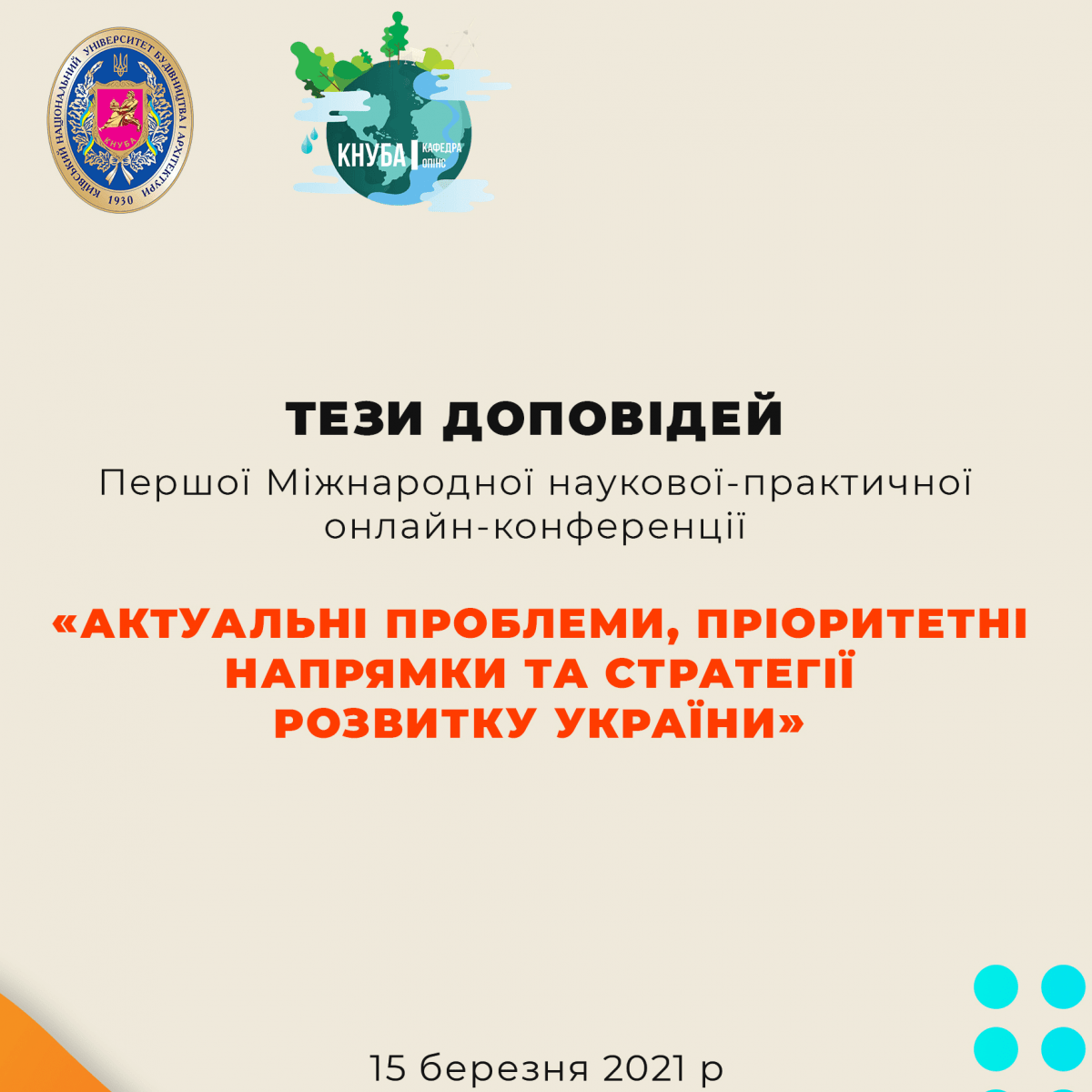Недавні записи
- В Ужгороді пройде наймасштабніша медична конференція в Україні — “Breast Weekend 2.0” 20.04.2025
- Чемпіонат України серед фасадників KREISEL 2025: масштабна битва майстрів та відкриття найбільшого заводу сухих сумішей в Україні 19.04.2025
- Системна підтримка сімей ветеранів – ключовий фактор стійкості та безпеки держави 14.04.2025
- Закарпатський амбасадор організував масштабну гуманітарну допомогу для Чернігівщини 14.04.2025
- Дональд Трамп-молодший планує тур Східною Європою 14.04.2025
Features of marketing management of microenterprises in the hospitality industry in the era of coronavirus

Gurova Darya
Tsviliy Sergiy
(Zaporizhzhya, Ukraine)
ЕКОНОМІКА ПІДПРИЄМСТВА ТА УПРАВЛІННЯ
(Маркетинг та менеджмент)
Features of marketing management of microenterprises in the hospitality industry in the era of coronavirus
Hospitality is the process of receiving and serving guests globally and locally. Referring to the specifics of the sale of tourist products by hospitality enterprises to end consumers, it should be noted that the vast majority of them according to the classification of the division refers to micro-business (book value of assets – up to 350 thousand euros; net income from sales of products (goods, works, services) – up to 700 thousand euros, the average number of employees – up to 10 people) [1]. Under these conditions, micro-business firms often find themselves at a disadvantage in the market, as larger competitors have much more powerful capital, an attractive brand and more powerful levers of influence. In the conditions of COVID-19, additional organizational, legal and economic burden falls on the hospitality market operators, which are microenterprises. From this point of view, the traditional approach to the use of marketing tools in the fight against competitors for the consumer is already considered ineffective and needs to be improved at the operational, tactical, strategic levels.
Currently, the hospitality industry in Ukraine is undergoing a number of significant changes under the influence of the COVID-19 pandemic. In all subsystems of hospitality there is a search for new forms of cooperation between market counterparties, characterized by division of labor, specialization, cooperation of firms, agencies and operators.
With the transition of the domestic hospitality economy to the adaptive management mechanism in the conditions of COVID-19 there is an acceleration of market deregulation and transformation of business structures of micro-business to a multi-vector policy of building marketing relationships with customers.
Coronavirus realities dictate to micro-business the latest requirements for business organization, which are associated with a decrease in the level of economic security and, at the same time, an increase in the level of financial risk. Also in the area of special attention and responsibility of the management of firms should be issues of entrepreneurial risk, the reduction of which should be achieved only through the development and most accurate use of the concept of coronavirus marketing.
Thus, it is clear that an entrepreneur cannot keep a consumer of services if he does not receive a return on invested capital and if he does not again invest part of the profit in the production of a hospitality product to meet the needs and desires of its customers [2]. That is, marketing in the field of services is not a one-time and unambiguous action, tool, measure, but affects all areas of each microenterprise, its organizational and functional structures, and managing the implementation of coronavirus marketing activities and mechanisms becomes a daily practice of the team and partners.
Marketing departments of microenterprises must constantly expand their functions in the context of the COVID-19 pandemic, with special emphasis on mutually beneficial relationships with consumers. Long-term customer relationships are much cheaper than the marketing costs that are necessary to increase a potential customer’s interest in the company’s services.
The integrated product of a micro-company in the field of hospitality, first of all, should be a profitable purchase for the consumer, so marketing management should focus on consistent actions that are aimed at achieving this goal. Taking into account the coronavirus priorities in marketing management, the owners, management and staff of the micro-enterprise should pay special attention to understanding such concepts as “marketing position”, “marketing process” and “marketing technology”.
The initial coronavirus marketing position is the presence of a certain market and sufficient consumer demand for the services of micro-companies in the hospitality industry. Only after confirming reliable data on demand, the firm can actively develop a marketing strategy and plans for its implementation; however, if demand is insufficient, you should look for ways to create or stimulate it, which, in turn, adjusts the profile of the enterprise. In principle, any market measure can be considered justified if it is based on a real assessment of demand and does not pose an additional threat to the firm. Regarding strategic marketing, it should be added that a microenterprise in developing a postcoronavirus vision of its position in the hospitality market should actively generate demand based on forecasting its development.
Marketing technology in the context of the COVID-19 pandemic should be based on management methods in marketing used by entrepreneurs in the process of studying demand, planning production and sales of services.
References:
1. Zakon Ukrayiny «Pro bukhhaltersʹkyy oblik ta finansovu zvitnistʹ v Ukrayini» [Law of Ukraine “On Accounting and Financial Reporting in Ukraine”]. URL: https://zakon.rada.gov.ua/laws/show/1023-12 [in Ukrainian]
2. Strashynsʹka L. V. (2011) Marketynh hotelʹnoho i restorannoho hospodarstva [Marketing of hotel and restaurant economy]. Kyiv: NUKHT [in Ukrainian]

